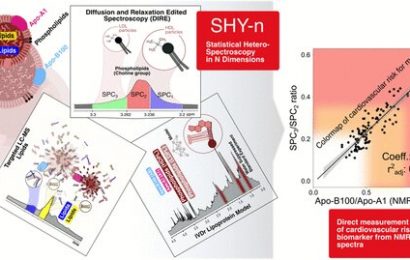Daprodustat, an oral agent that boosts hemoglobin levels, became the first member of the hypoxia-inducible factor prolyl hydroxylase inhibitor (HIF-PHI) class to receive support from a US Food and Drug Administration (FDA) advisory committee, which on October 26, voted 13-3 that the benefits of daprodustat outweigh its risks for treating anemia in adults with chronic kidney disease (CKD) and on dialysis.
However, the same panel voted 11-5 against the proposition that daprodustat’s benefits outweighed its risks for patients with CKD who do not require dialysis.
Daprodustat received a better reception from the FDA and its Cardiovascular and Renal Drugs Advisory Committee than two prior candidates from the same HIF-PHI class. Roxadusat was overwhelmingly voted down in July 2021 by the committee for people with CKD on or not on dialysis, paving the way for the agency to later withhold marketing approval. And vadadustat also failed to receive marketing approval from the FDA earlier this year, without any advisory committee review.
FDA advisory committee recommendations are considered by the agency but are not binding.
“Effectiveness Is Established”
The advisory committee’s split vote on daprodustat focused on safety concerns raised by results in the two large, pivotal trials for the agent, ASCEND-D (in patients on dialysis) and ASCEND-ND (in patients not on dialysis), both published a year earlier in the New England Journal of Medicine. Both trials compared the safety and efficacy of oral daprodustat with injected treatment with an erythropoiesis-stimulating agent (ESA), the currently preferred approach to treating anemia in all patients with CKD.
FDA representatives who spoke during the meeting fully acknowledged that daprodustat’s effectiveness documented in both trials was not the issue. The agency agreed that “substantial evidence of effectiveness is established,” said Justin Penzenstadler, PharmD, a clinical reviewer in the FDA Office of Cardiology, Hematology, and Nephrology.
Penzenstadler also cited the potential convenience of an oral agent for treating anemia compared with infusing or injecting an ESA, which requires patients to travel to receive treatment.
Safety Was the Issue
However, in terms of safety, the FDA’s presentation highlighted several concerning signals of excess adverse events. These included hospitalizations for heart failure, serious gastrointestinal (GI) bleeds and erosions, and acute kidney injury in people not on dialysis, and hospitalizations for heart failure and serious GI bleeds and erosions in those on dialysis.
These signals of possible harm raised concerns even though in both trials daprodustat treatment fell within the prespecified margin for noninferiority compared with ESA treatment for the trials’ primary safety outcome of major cardiovascular events, which combined death from any cause, nonfatal myocardial infarction, and nonfatal stroke.
Concerns about these safety signals were magnified by two observations made by several panel members. First, the comparator agent in both large trials were ESAs, not placebo, and ESAs themselves are known to pose certain safety concerns that exceed placebo effects.
A Pattern of Class Effects?
Second, several committee members saw the safety signals seen with daprodustat as concerningly consistent with safety issues that had previously tripped up roxadustat and vadadustat.
“When we see the same signal across multiple members of a class, there is a pattern that we can’t ignore,” said Milton Packer, MD, a heart failure specialist at Baylor University Medical Center in Dallas, Texas.
However, Packer and several other panelists rated the safety concerns as much more apparent and troubling among trial participants not on dialysis.
“In contrast with the nondialysis patients, I’m more comfortable with the safety in the patients on dialysis,” said Christopher M. O’Connor, MD, also a heart failure specialist and president of the Inova Heart and Vascular Institute in Fairfax, Virginia.
Many panelists explained their split vote as boiling down to weighing risks and potential benefits from daprodustat and concluding that this balance favored daprodustat for people on dialysis but ruled out the agent for people not on dialysis.
Injected Treatment Burdens Those Not on Dialysis
That’s a decision some clinicians and patients may find frustrating, as the need for an orally administered alternative to injected ESAs is seen as most compelling for people not on dialysis, and hence, not traveling on a regular basis to a dialysis center.
“ESA treatment for patients with CKD not on dialysis is very low,” commented Jay B. Wish, MD, chief medical officer for dialysis at Indiana University Health in Indianapolis, who was not a committee member. Patients not on dialysis “bear a burden” in getting ESA treatment, and often instead receive “the worst possible treatment for anemia — transfusions,” Wish said in an interview.
The problem with transfusions, which often are ordered by non-nephrologists when a patient’s hemoglobin level reaches a dangerous nadir, is they cause sensitization to human alloantigens that pose major obstacles down the road when patients on dialysis need a kidney transplant. The potential for transfusion avoidance because of daprodustat availability “is a big deal,” said Wish.
Help for Home Dialysis
Daprodustat may also be a big deal for many people on dialysis as well, even though Wish notes that “the vast majority of patients on dialysis do fine with ESA treatment” they receive during dialysis sessions.
But dialysis is not always administered at a clinical center. The US government is actively promoting home dialysis through the Advancing American Kidney Health Executive Order of July 2019. In 2019, about 13% of US patients on dialysis received treatment at home, a rate that will likely increase because of the executive order and because at-home dialysis appeared to gain popularity during the COVID-19 pandemic.
“Home dialysis is where patients want to go; COVID-19 helped establish this,” said Paul T. Conway, the patient representative on the advisory committee. Conway, who has received dialysis treatment, is immediate past president of the American Association of Kidney Patients.
“It’s good to have more treatment choices. Daprodustat helps avoid transfusions, and it disrupts the status quo,” added Conway, who called the panel’s decision on daprodustat a “victory for patients.”
The daprodustat trials were sponsored by GSK. None of the FDA advisory committee members had relevant disclosures. Wish has been an advisor to GSK.
Mitchel L. Zoler is a reporter for Medscape and MDedge based in the Philadelphia area. @mitchelzoler
For more news, follow Medscape on Facebook, Twitter, Instagram, YouTube, and LinkedIn.
Source: Read Full Article


